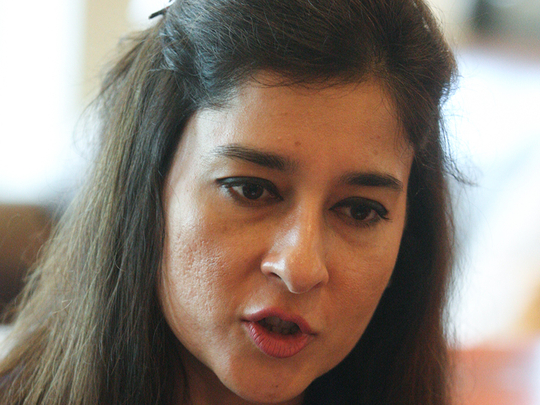
Dubai: The UAE has helped Pakistan fight its polio epidemic by funding campaigns that has allowed health workers reach areas that were formerly inaccessible, a senior Pakistan leader said.
Senator Ayesha Raza Farooq, who is heading the campaign under the direct supervision of Pakistan Prime Minister Nawaz Sharif, briefed Gulf News about the progress of the programme, while lauding the enormous role played by the UAE in the success of this crucial battle.
“There has been a major turnaround in the polio situation in Pakistan as our valiant armed forces have helped us reclaim areas that were earlier inaccessible. The UAE has played a major role in funding these operations and as a consequence of this and through a heightened level of political commitment we have successfully tackled polio,” said Senator Farooq, the prime minister’s focal person for polio eradication.
She added that under the UAE-assisted project the armed forces continue to provide vital support all over FATA (Federally Administered Tribal Areas), in Khyber Pakhtoonkhwa, Karachi and ten districts of Balochistan.
With improved monitoring and coordination, she said, there has been a sharp rise in campaign coverage and a dip in the number of reported cases.
“Polio cases have plummeted from 58 in the corresponding period last year to 22 cases this year. Poliovirus is also increasingly disappearing from the environmental samples. Most recently, samples tested negative for polio virus in reservoir areas such as Gadap and Baldia Karachi, Quetta and Killa Abdullah,” said Senator Farooq, who is on a visit to the UAE to attend a meeting of the Independent Monitoring Board, which was held in Abu Dhabi on Wednesday.
The five campaigns conducted in 2015 have achieved an overall coverage of 98 per cent against that of 94 per cent achieved in 2014.
In an important development, children on the move have of late been a special focus of attention of the program.
“Under a special transit strategy 17 million children travelling within and from outside the country were vaccinated through 583 Permanent Transit Posts throughout the country at key points. All Afghan refugee families being repatriated in collaboration with UNHCR [United Nations High Commissioner for Refugees] are being given both routine and polio vaccinations,” she added.
Innovative strategies
“Thanks to the concerted efforts and through the help of the UAE, all agencies of FATA are now accessible to health workers and polio vaccination is in full swing. “Most of the restive and security compromised areas of the country have been successfully targeted through special protected polio campaigns with innovative strategies including reducing the campaign to one day and by cordoning off areas to provide a safe environment for vaccinators.”
Among the strategies employed is the deployment of local women volunteers in tribal areas, which has helped reduced cases of refusal and helped tackle other security and social issues.
“As a result of effective interventions to engage refusal families, there has been a sharp decrease in refusals from the previous 0.30 per cent to 0.11 per cent, the lowest ever in the programme’s history,” she said.












